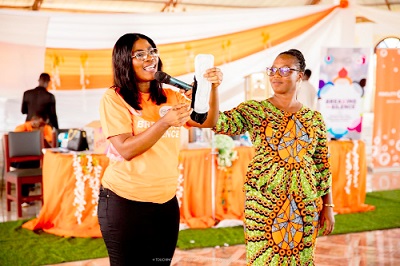
Period poverty: How loud must we shout to be heard?
This year marks my sixth year of actively talking about menstrual hygiene, myths and misconceptions about menstruation and the need to take taxes off sanitary pads.
Advertisement
In these years, I have seen a number of organisations join the campaign, with the media giving us platforms to talk about this important subject.
Menstruation
Although the advocacy is intensified in May when we mark World Menstrual Hygiene Day, some of us embark on year-long campaigns because we know that women do not only menstruate in May.
For years, we have been shouting about the need to take taxes off products women use during a natural monthly occurrence.
Women don’t menstruate because they decide to. I bet many would have opted to stay free from the cramps, hormonal changes and many uncomfortable changes it comes with it if we had the choice.
A few weeks ago, I was having a conversation with a female friend in her late 30s, and the current prices of sanitary pads came up.
She said she can only imagine the amount of money she would have saved by now if she had placed the monthly cost of sanitary pads in a piggy bank since she started menstruating over 20 years ago.
We laughed over her calculations but a question that kept recurring to me was: “How do we expect women and girls who cannot afford these expensive pads to menstruate “healthily”?”
Harrowing stories
Since I began this campaign, I have been to countless schools across the country and the stories from young girls even from some schools in Accra are harrowing.
There are girls who use plantain leaves, rugs, old newspapers and other unsanitary materials during their menses.
And from the stories, you realise they were taught by either their mothers, sisters or elderly women in their communities to use those materials.
You can only imagine the number of explained infections passed down through the years.
Anytime these stories are shared, they remind me of my personal near-death experience resulting from years of improper menstrual hygiene practices.
I keep sharing the story of how I nearly lost my life following a severe pelvic infection which spread to my ovaries.
According to doctors who performed surgeries on me, the growth was a result of years of improper hygiene practices.
Complications
I remember using toilet rolls during my monthly flow. Unknown to me, pieces of tissue paper had started breeding germs, causing an infection that spread to my ovaries.
I speak about menstrual hygiene not only because I am a woman but because I know, firsthand, how far complications from improper menstrual hygiene practices could go.
And so I have been shouting, putting in personal resources, “begging” for funds from individuals and organisations and collaborating with different stakeholders so we can see changes, especially on the price of sanitary pads…but it looks like we are not shouting enough or our voices have been ignored by the people who can effect the change we want.
Import duties
Successive governments have made promises of removing import duties on menstrual hygiene products, but we are yet to see that happen, as menstrual hygiene products are still classified as luxury products and heavily taxed.
Some time ago, when we spoke about taxes on menstrual hygiene products, our emphasis was on taking these taxes off so girls and women in deprived communities and low-income homes can afford them.
Today, compare the price of sanitary pads to what it was a year ago and you will be shocked at the difference in prices.
High cost
The rising cost of items is biting everyone from high, middle to low-income earners.
One can only imagine the unsanitary materials women and girls in deprived communities have resorted to.
There are countless instances where young girls stay out of school during their menses because they are shy of soiling themselves while in school.
Barriers
Women already face a number of barriers when it comes to achieving their dreams. Must menstruation, a natural occurrence, also add up to these barriers?
We are grateful to the individuals and businesses who support us with sanitary products to be distributed to young girls throughout the year and the many teachers who use part of their meagre salaries to buy pads for girls just so they stay in school during their monthly menstrual flow.
We will keep shouting. Hopefully, the soundproof walls around us will eventually break like the “Wall of Jericho” did and our voices will be heard.
Touching the Lives of Girls Foundation International is a non-governmental organisation that seeks to educate, inform, enforce and monitor proper menstrual hygiene practices among adolescent girls
The writer is the Founder of Touching Lives of Girls Foundation International
Email: [email protected]



